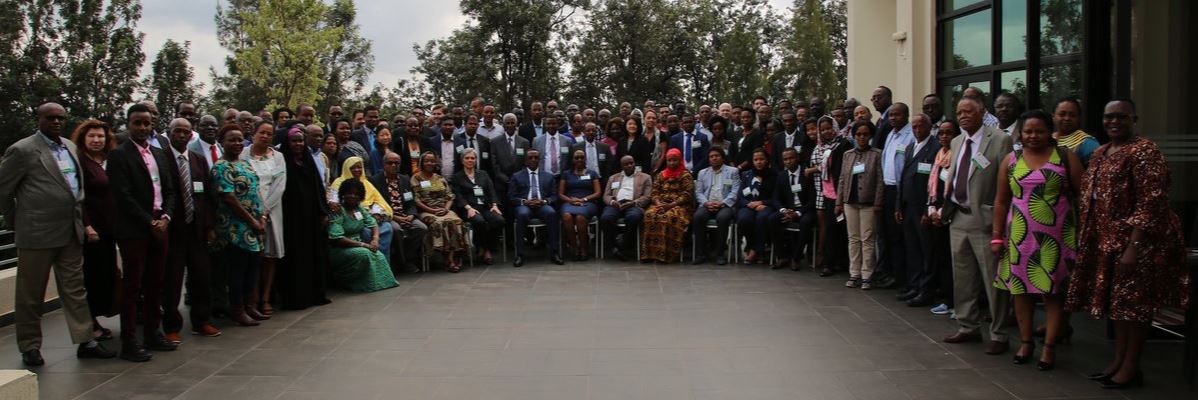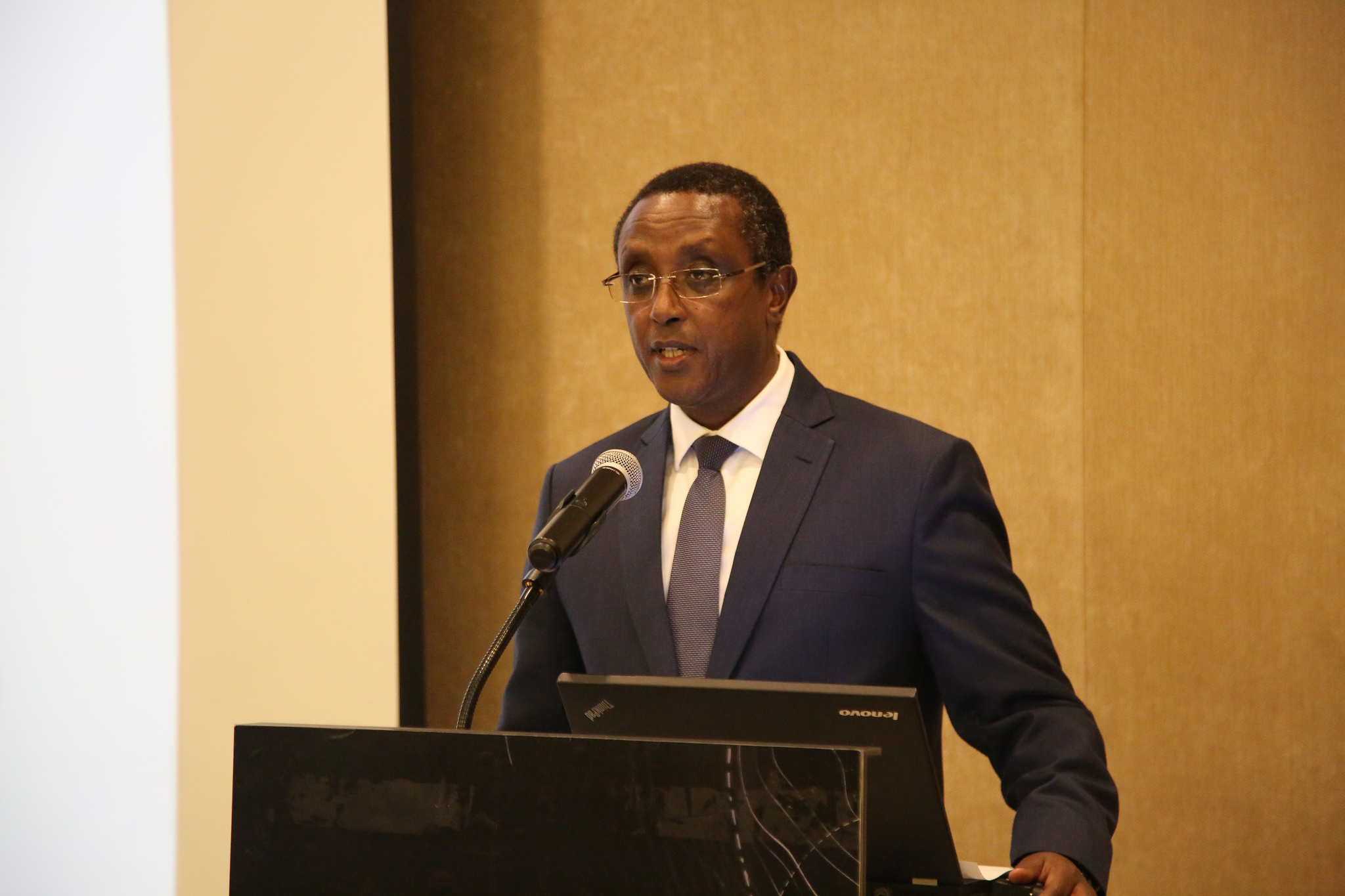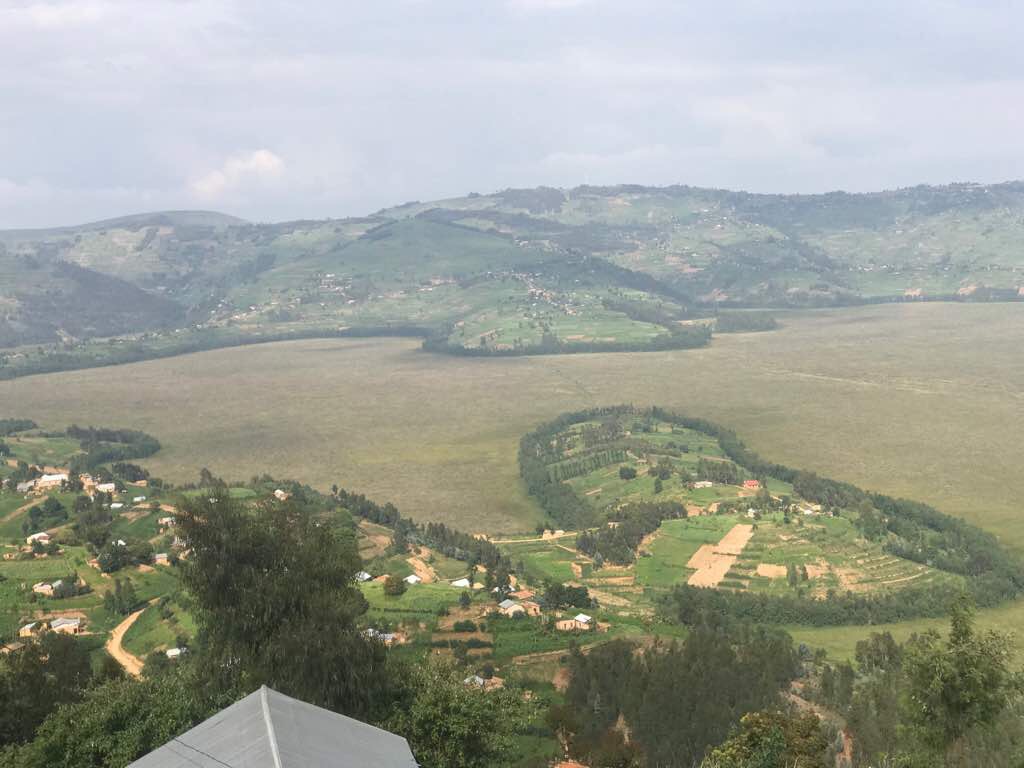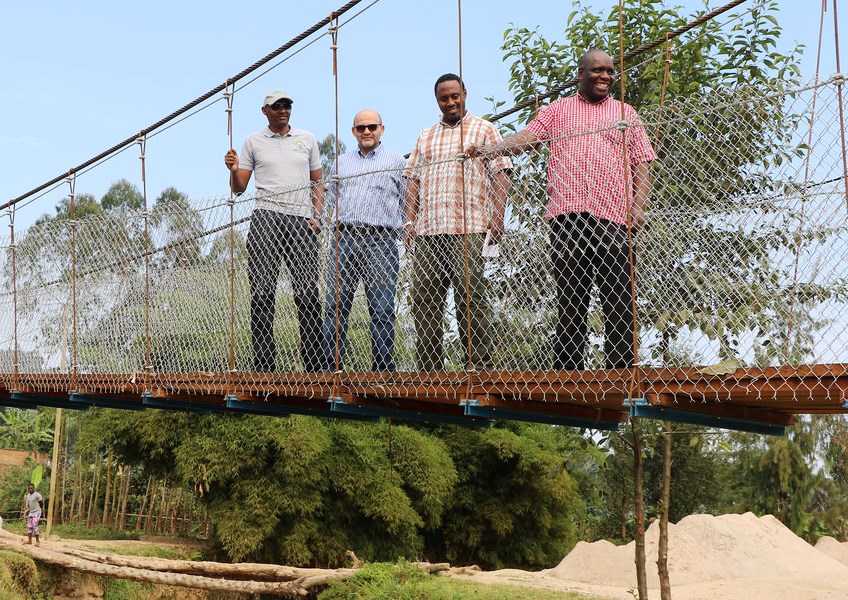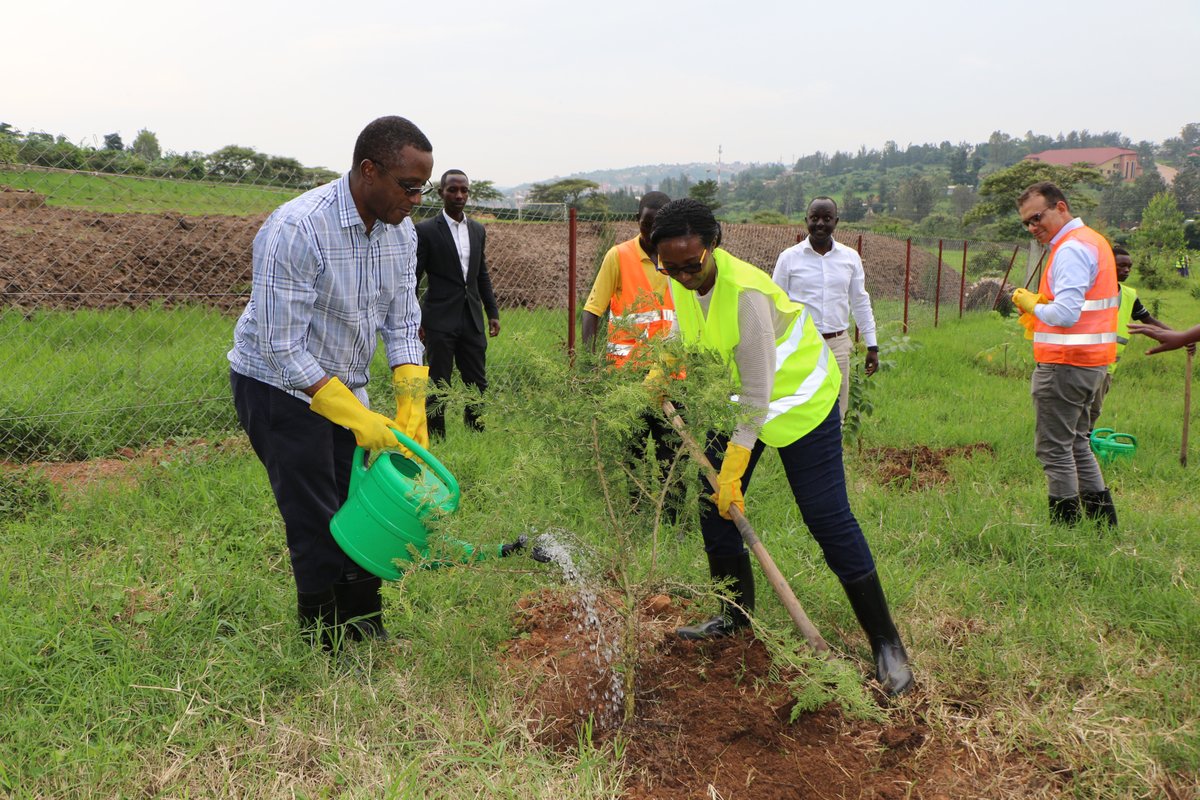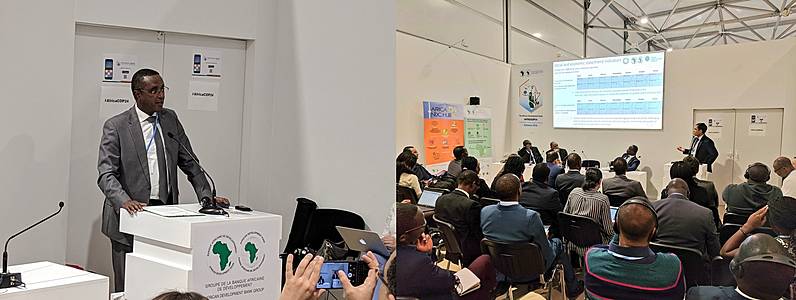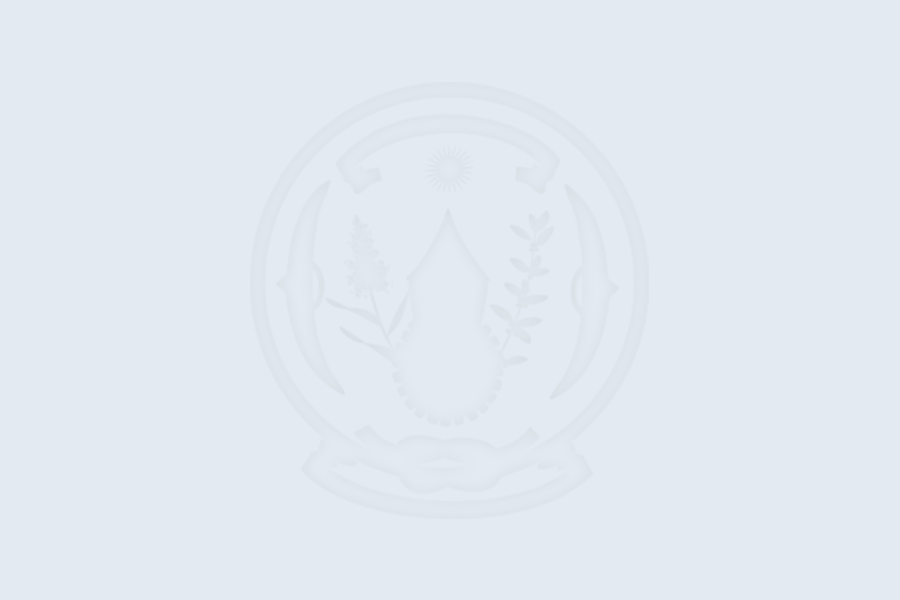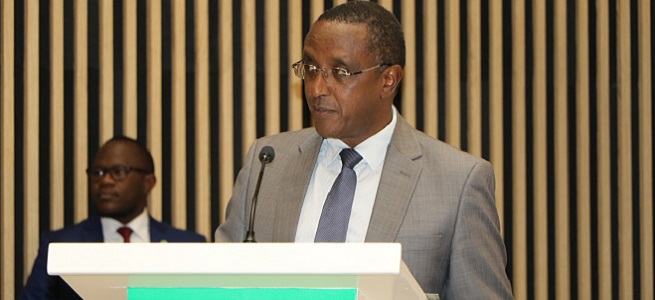
Remarks by Minister of Environment at Launch of National Environment Week
Fellow Ministers,
One UN Resident Coordinator,
Private Sector Federation Chairperson,
Distinguished guests,
Ladies and gentlemen
Mwaramutse!
It is a pleasure to be with you this morning as we officially launch this year’s National Environment Week. I wish to thank you all for joining us, and I look forward to a lively conversation about how we can join hands to beat plastic pollution.
Today’s conference on addressing the challenge of plastic waste is timely.
Around the world, almost 450 million tons of plastic is produced every year. It’s especially troubling that 40 percent of plastic produced is packaging, used just once and then discarded. The scale of the problem can perhaps best be seen in the number of plastic bottles we use: globally, nearly a million plastic beverage bottles are sold every minute.
Of this plastic waste, an estimated 13 million tons enter the world’s oceans each year. By 2050, it is estimated that there will be more plastic than fish in the oceans. Most plastics are made from fossil fuels like crude oil, which contributes to climate change and estimates for the time it takes plastics to break down range from 450 years to never. It’s clear that plastic waste has become an environmental catastrophe we can no longer ignore.
Since Rwanda introduced the law to prohibit the manufacture, importation, use and sale of polythene bags a decade ago, we have seen remarkable progress and we are pleased that other countries, especially our neighbours the region, are following suit.
Today, the challenge we face is no longer plastic bags alone, but all plastics, especially those used once and thrown away. These disposable plastics are known as ‘single use’ plastics.
Single use plastics are damaging our rivers, wetlands, and farmlands. They also pose a risk to our health. Like all rubbish, plastic waste blocks drains and waterways. This increases the chances of flooding and provides the breeding grounds for mosquitoes, raising the risk of malaria and other water borne diseases.
This year, the Ministry of Environment and partners have been working on new ways to improve plastic recycling and reduce plastic waste. We are in the process of revising the plastics law to reduce single use plastics and improve the efficiency and effectiveness of plastic recycling in the country.
As a first step, the Ministry of Environment and its agencies have committed to no longer using disposable plastics. We have installed water dispensers and have replaced bottles with glasses and cups in our offices and meetings. I wish to thank government institutions which have joined this campaign and taken the “Beat Plastic Pollution” pledge and I hope other institutions will join.
I encourage everyone to invest in sustainable alternatives to plastics that are better for our health and the environment. Some of the biggest sources of plastic waste include bottles, straws, cups, plates and cutlery - the kind you often see at meetings and traditional gatherings like weddings. It’s time to make the switch and say no to single use plastic. For example, when you are at a restaurant, tell the staff that you don’t want a straw in your glass of juice or disposable cutlery. If you like takeaway coffee, bring your own mug.
In summary, if you can’t reuse it, just refuse it!
Today, we are hosting one of the first meetings at this venue without plastic bottles. Not only is it possible to stop using disposable plastic, but such simple changes in our behaviour can have a big impact. Ending plastic waste will protect our health and environment, save money and reduce the burden on the country’s waste management system.
Over the next week, a number of activities are being held as part of National Environment Week and World Environment Day. I hope you will join us for the Beat Plastic Pollution walk during Car Free Day this Sunday, and the many other events taking place during the week.
I wish to conclude by encouraging the private sector to take advantage of the opportunity to develop solutions that beat plastic pollution. Just as local and regional companies answered the call when we banned plastic bags, I have no doubt that our private sector is up to the challenge and can profit greatly.
The Ministry of Environment and agencies are ready to support government institutions, the private sector and civil society to make the most of the transition away from disposable plastics. And I am happy that today we are not going to leave any plastic behind.
I thank you for joining us today and for your kind attention.
Topics
More posts
Rwanda Hosts the GEF Eastern Africa Expanded Constituency Workshop
Kigali, 12 February, 2019 – Participants from 14 East African countries are meeting in Rwanda for a four day Expanded Constituency Workshop, organized…
Global Environment Facility Expanded Constituency Workshop for Eastern Africa-Opening Remarks by Minister Biruta
Marriott Hotel, Kigali | 12 February 2019
● Francoise Clottes, Director of Strategy
● and Operations, Global Environment Facility
● Coletha Ruhamya,…
Rwanda celebrates World Wetlands Day to raise public awareness to relocate illegal activities from wetlands
Kigali, 31 January, 2019 - Rwanda celebrated World Wetlands Day on 31 January, 2019 in an event aimed to raise awareness to to relocate illegal…
Rwandans Urged to Wisely Use Wetlands as the Country Celebrates the World Wetlands Day 2019
Every year, Rwanda joins the world in commemoration of the World Wetlands Day (WWD), celebrated on 2nd February with the aim of raising public…
Restoring Gishwati-Mukura Landscape: Improving livelihoods while Promoting Tourism
The Rwanda Environment Management Authority (REMA) through Landscape Approach to Forest Restoration and Conservation (LAFREC) project is…
Activities for Transforming Nyandungu Wetland into an Eco-Tourism Park on Track
The Minister of environment Dr. Vincent Biruta has commended the good progress over the implementation of the project of turning Nyandungu wetland…
Remarks by Minister Biruta at AfDB-GGGI Study on Africa Green Growth Readiness Assessment COP24
10 December 2018
·Frank Rijsberman, Global Green Growth Institute Director General
·Amadou Hott, Vice-President, Power, Energy, Climate and Green…
Rwanda Fosters Green Investment and Sustainable Development in the First Event of the Africa Green Green Growth
A high-level policy dialogue was organised to share the progress made in the implementation of Rwanda’s Green Growth and Climate Resilience Strategy…
Africa Green Growth Forum Participants Encourage Young Students to Be Environment Champions
On the first day of the Africa Green Growth Forum, participants took part in planting trees with students from three primary schools. Themed, “Green…
